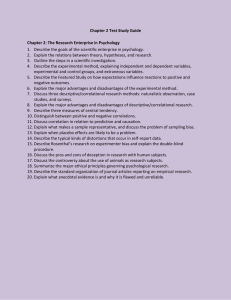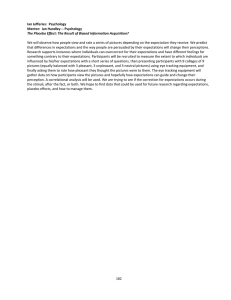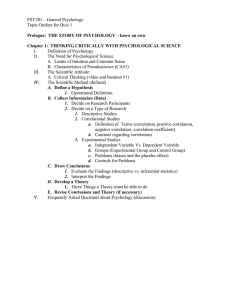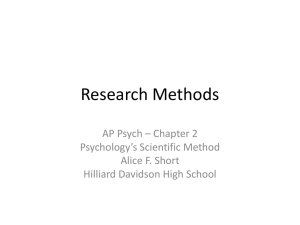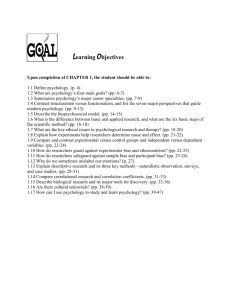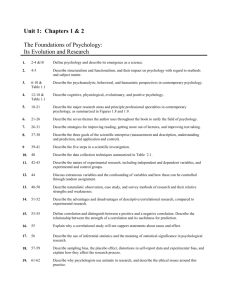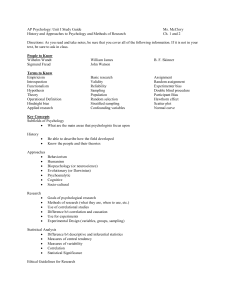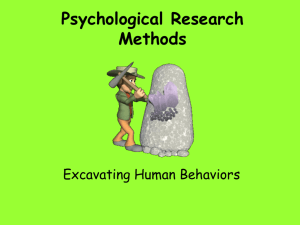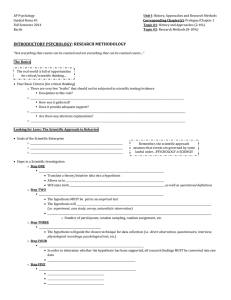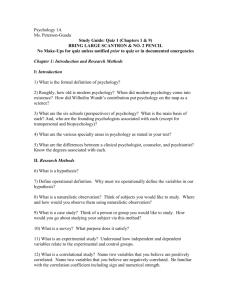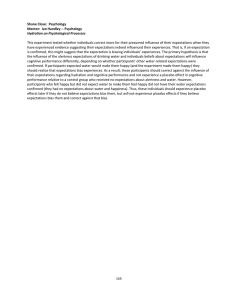Research Methods Study Guide
advertisement
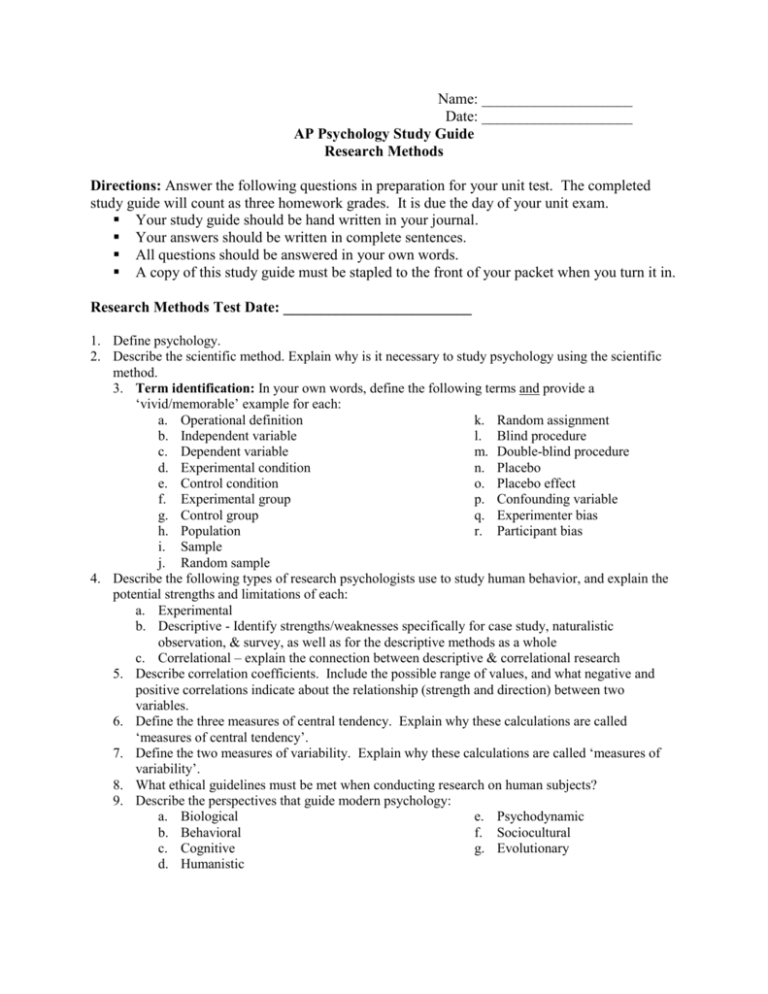
Name: ____________________ Date: ____________________ AP Psychology Study Guide Research Methods Directions: Answer the following questions in preparation for your unit test. The completed study guide will count as three homework grades. It is due the day of your unit exam. Your study guide should be hand written in your journal. Your answers should be written in complete sentences. All questions should be answered in your own words. A copy of this study guide must be stapled to the front of your packet when you turn it in. Research Methods Test Date: _________________________ 1. Define psychology. 2. Describe the scientific method. Explain why is it necessary to study psychology using the scientific method. 3. Term identification: In your own words, define the following terms and provide a ‘vivid/memorable’ example for each: a. Operational definition k. Random assignment b. Independent variable l. Blind procedure c. Dependent variable m. Double-blind procedure d. Experimental condition n. Placebo e. Control condition o. Placebo effect f. Experimental group p. Confounding variable g. Control group q. Experimenter bias h. Population r. Participant bias i. Sample j. Random sample 4. Describe the following types of research psychologists use to study human behavior, and explain the potential strengths and limitations of each: a. Experimental b. Descriptive - Identify strengths/weaknesses specifically for case study, naturalistic observation, & survey, as well as for the descriptive methods as a whole c. Correlational – explain the connection between descriptive & correlational research 5. Describe correlation coefficients. Include the possible range of values, and what negative and positive correlations indicate about the relationship (strength and direction) between two variables. 6. Define the three measures of central tendency. Explain why these calculations are called ‘measures of central tendency’. 7. Define the two measures of variability. Explain why these calculations are called ‘measures of variability’. 8. What ethical guidelines must be met when conducting research on human subjects? 9. Describe the perspectives that guide modern psychology: a. Biological e. Psychodynamic b. Behavioral f. Sociocultural c. Cognitive g. Evolutionary d. Humanistic
